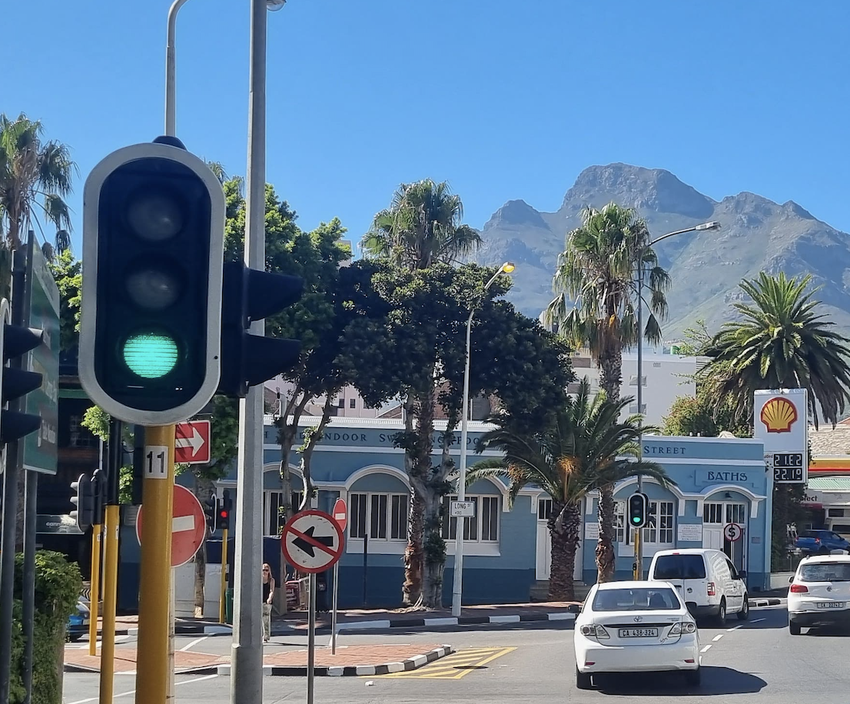The Solar Thermal Training and Demonstration Initiative (SOLTRAIN) project’s objectives include the strengthening of the relationship between the Ministry of Mines and Energy (MME) and the National Housing Enterprise (NHE) in the implementation of the 2007 cabinet directive instructing that solar hot water heaters be installed in government buildings, and supporting NamPower’s electricity demand side management efforts. In an effort to develop a flagship site for the SOLTRAIN project in Windhoek that can be used as a showcase for promotion of solar hot water among policymakers and project financers, the project has facilitated the installation of 62 solar water heaters at low cost houses in Windhoek’s Otjomuise. This has been a collaborative effort led by the Namibia Energy Institute at the Namibia University of Science and Technology (NUST), together with the MME and the NHE.
A collaboration agreement was signed in May 2015 between the MME, NHE and Trinity Business Solution who will supply and install the solar water heaters). The installations commenced in December 2015 and were completed in March 2016. Trinity Business Solutions’ technicians, many of whom were interns from different Vocational Training Centres, who installed the systems received training from an expert from AEE INTEC in Austria, Mr Rudi Moschik, at a workshop before starting with installation.
The Namibia Energy Institute, under the guidance of the AEE INTEC of Austria, has installed system performance monitoring systems at 6 houses (4 with solar water heaters and 2 with electric geysers) so as to provide practical data on typical household energy consumption, to verify and demonstrate the efficiency and cost-effectiveness of solar water heaters versus electrical geysers in Namibia. This flagship district serves to provide proof of concept that a house with solar water heating is a lower cost option when compared to an electric geyser. Once policymakers are convinced, they will be encouraged to extend the cabinet directive on implementing solar hot water systems to all public development companies that use public funds to construct houses, such as the NHE.
For example, based on data from the first three months of monitoring (Jan – March), the solar yield in Otjomuise is between 140 and 145 kWh/month. A family of three using a solar water heater (160L) had no need for any electrical back-up during this three-month period. In the six houses monitored, the hot water consumption ranged from 17 to 34 litres for one person per day.
While the amount of data currently available is limited, it appears that electricity demand in the homes using electric geysers is significantly higher than in homes using solar water heaters. The electricity demand for electric geysers (100L) ranges from 45 to 90 kWh per month. In addition, the data show clearly that both systems, solar and electric, suffer from significant thermal losses from storage tanks. This is an area where significant additional energy savings can be achieved through the development of standards. Further research into monitoring the different types of solar and electric water heating systems will soon become required.
SOLTRAIN Project was pitched as one of the regional prospective projects of Southern African Centre for Renewable Energy and Energy Efficiency (SACREEE).
The Namibia Energy Institute (NEI) at Namibia’s University of Science and Technology (NUST) was requested by the SACREEE team to pitch the SOLTRAIN Project as one of prospective flagship projects of SACREEE at the third knowledge management component of the Energy and Environmental Partnership (EEP) programme “Knowledge Exchange Forum” (KEF). This forum took place in collaboration with the Southern African Centre for Renewable Energy and Energy Efficiency (SACREEE) in Namibia on June 2nd 2016 at the Avani Hotel.
Presentations, information sessions and round table discussions on topics of relevance to EEP project developers were presented and discussed. The event was attended by more than 80 participants, consisting of Energy and Environment Partnership coordinators from Swaziland, South Africa, Botswana and Namibia. Representative from EEP-lead donor funding countries such as Finland, UK and Austria also attended the event. Ms Helvi Ileka, the Projects Officer at NEI at NUST, pitched a 5 minute video presentation for the SOLTRAIN Project.
She highlighted the main objective and scope of the project, current costs, time frames of the programmes and progress to date of the projects, especially the development of the Solar Thermal Road Map and the joint research projects and scientific publications that have a direct linkage to the Knowledge Management System of SACREEE. Additionally, she informed the participants on the value proposition of the projects for SACREEE.








